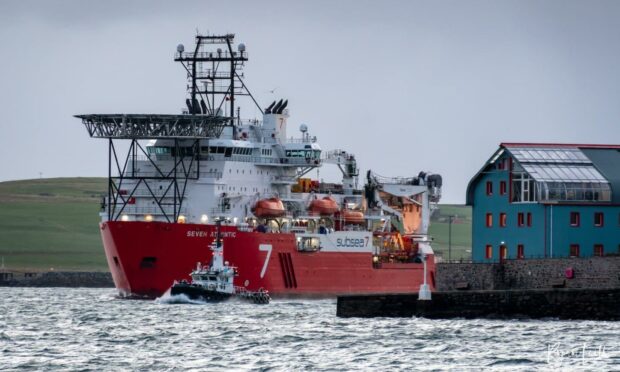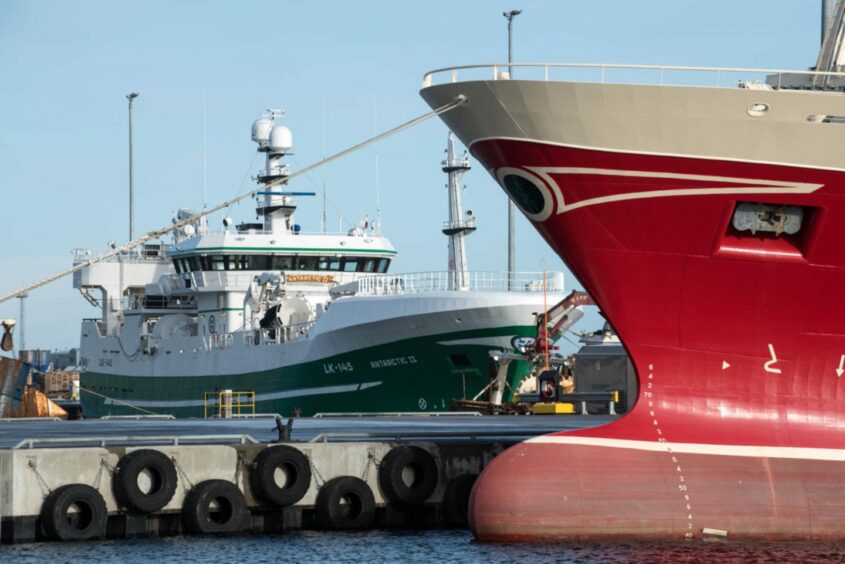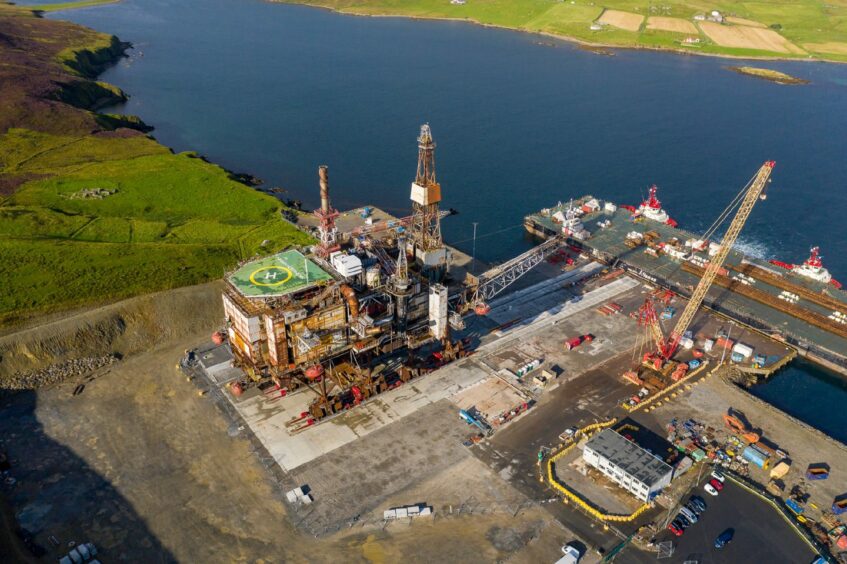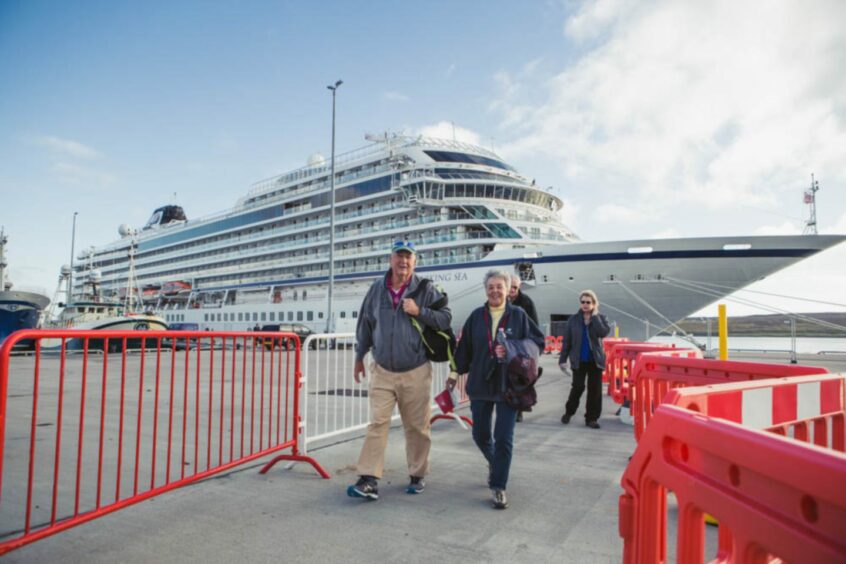Lerwick harbour workers are taking part in an industrial action ballot over their pay, terms and conditions.
Unite the Union said employees included in the ballot running at Shetland’s main port until March 9 had “unanimously” backed industrial action in a consultative vote.
The union warned strike action by the workers, who include engineers, electricians, joiners and general operatives, would severely disrupt shipping at the harbour.
Unite added its members were challenging “detrimental” changes to basic pay, overtime, standby and call-out payments, plus pension contributions.
It claimed these changes would further cut incomes for workers who already derive 40p in every £1 of their pay from overtime payments.
Talks are continuing and we hope the discussions can prevent any dispute.”
John Clark, Unite.
The union wants pay and conditions to be brought into line with industry standards set by the National Agreement for the Engineering Construction Industry and Scottish Joint Industry Board.
Unite industrial officer John Clark said: “Talks are continuing and we hope the discussions can prevent any dispute.
“But, if there is no breakthrough, Lerwick Port Authority (LPA) management will be left in no doubt that our members will fight to win a fair pay deal and to reverse a number of detrimental changes made to their contracts.”
Meanwhile, new figures from LPA show a gradual recovery in activity at Lerwick harbour continued in the fourth quarter of 2021.
The port’s bosses said the year ended on a “cautiously positive note”.
And annual data for the Shetland harbour reveals improvements in a variety of sectors last year, compared with 2020 – which was also impacted by the Covid-19 pandemic.
There was a 20% year-on-year increase in the number of oil-related vessel arrivals, but a 7.5% decrease in tonnage at 1,186,226 gross tonnes in 2021.
The tonnage figure for 2020 was boosted by delivery of the Ninian Northern topside for decommissioning.
LPA’s latest figures include a jump in diving and offshore support vessels working on installation, repair and maintenance programmes.
Oil-related cargo movement tonnages were up 10% to 60,180t.
Total cargo for the year reached 883,844t – up 17% overall and 14% on roll-on/roll-off ferries from Aberdeen.
There were 4,168 vessel arrivals overall, down 5%, although total shipping tonnage was up 9% at 8,902,647t.
Pilotage movements were up 12% at 609, due mainly to the cruise season reopening and more oil-related traffic.
LPA chief executive Calum Grains said: “The activity levels in the oil sector are encouraging, but – as in other areas of operations – must be viewed against a very poor year in 2020 because of Covid-19.
“We’re heading slowly in the right direction, with a long way to go to get back to normal levels.”
Total passenger numbers almost doubled for the year, with a 92% increase to 111,035, due to the lifting of Covid restrictions and a restart for cruises.
A brief 2021 cruise season saw 18 vessels, including new-build ships and new operators visiting for the first time, carrying 8,642 passengers.
We’re heading slowly in the right direction, with a long way to go to get back to normal levels.”
Calum Grains, chief executive, Lerwick Port Authority.
Mr Grains said: “We are encouraged about the recovery in domestic and international cruising, with more than 120 vessels currently booked to call and exciting prospects of seeing well-known customers returning and new brands and vessels, with 16 maiden calls this season.”
LPA said ferry passengers were up 81% to 102,393 in the second half of last year but are yet to return to previous levels.
There was a 9% drop in fishing vessels using the port during 2021, but white-fish landings remained steady at 204,534 boxes – down less than 1% on the previous year.
On the fishing-related activity, LPA said the impacts of reduced demand in the hospitality sector, Brexit challenges and quota reductions were “still being felt through various stages of the year”



